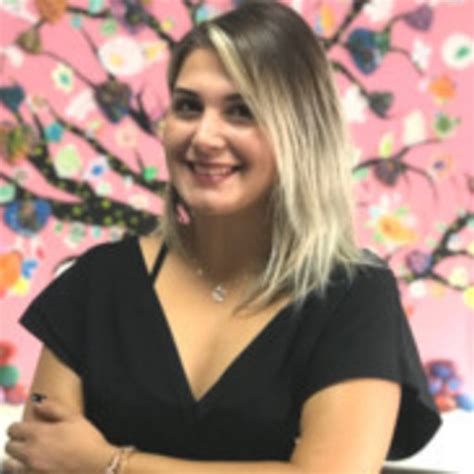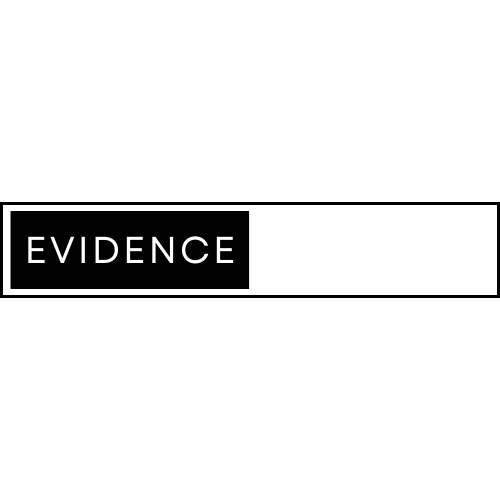Sociometry and Psychodrama as Experiential Methods in Education and Organizations
Scott Giacomucci, DSW, LCSW, BCD, CGP, FAAETS, TEP

The experiential methods of sociometry and psychodrama are not only useful in group therapy but also in educational and organizational settings. This short article will highlight their effectiveness in cultivating engagement, enhancing learning experiences, and promoting organizational health. At its core, a classroom and an organization are essentially a group. Many of the same group dynamics, group theories, and group interventions that we employ as group psychotherapists in clinical spaces can also be adapted for use in teaching and organizational leadership (Giacomucci, 2023).
The Classroom and the Organization as a Group
Understanding group dynamics is essential in being able to create a supportive group environment – whether in group therapy, a classroom, or an organization. Each of these group settings present common challenges for the leader – such as developing cohesion, promoting connection, resolving conflicts, aligning individual and group goals, and developing a safe container where the group can work towards its goals. As educators and organizational leaders who are also group specialists, we can be more effective by approaching classrooms and organizations through the lens of group dynamics. Sociometry and psychodrama can be employed as experiential group approaches to address the unique challenges in education and organizations and enhance our effectiveness as educators and organizational leaders.
Similar to a therapy group, classrooms are also microcosms of our larger society, where social roles and relationships impact learning experiences. The educator is also a group facilitator whether they realize it or not (Shulman, 1987). Likewise, in organizations, group dynamics influence productivity, work culture, and professional satisfaction. Recognizing these parallels allows us to leverage group methods such as sociometry and psychodrama to improve interactions and outcomes in non-clinical group contexts – such as classrooms and organizations.
Sociometry in Education and Organizations
Sociometry offers useful processes for assessing and improving sociodynamics while creating a more inclusive and engaging classroom experience for students. Experiential sociometry tools such as spectrograms, locograms, step-in sociometry, and sociograms allow us as educators to increase a sense of belonging and address issues such as isolation, insecurity, disengagement, and safety in the classroom (Giacomucci & Skolnik, 2021). Beyond their application to enhance group dynamics, experiential sociometry can also be employed to teach any course content as experiential teaching tools.
One example is the locograms or floor check, which can help educators to implement engaging and interactive teaching structures that promote critical reflection, increase cohesion, and stimulate productive discussion on course content. Employing a locogram is quite simple and involves printing out subtopics on paper (such as the six trauma-informed principles – 1) safety, 2) trustworthiness and transparency, 3) peer support, 4) collaboration and mutuality, 5) empowerment, voice, and choice, and 6) cultural, historical, and gender issues), then distributing them throughout the room while offering teaching on each subtopic. Next, the educator prompts students to physically move to the option that best answers various questions such as:
- Which do you feel you best embody in your work as an individual?
- Which do you feel you have the most room to grow in your work?
- Which do you feel the entire psychology profession has the most room to grow in?
- Which do you feel the entire psychology profession best embodies?
Each prompt results in a new configuration of subgroups where students are offered a few minutes to share in clusters. This process not only increases reflection and connection, but also serves as a group-as-a-whole assessment for the facilitator to examine overall trends in choices. These insights enable educators to tailor their teaching strategies to support both individual and group learning more effectively. Locograms can be modified for any topic; additional examples are outlined in other resources (Dayton, 2022; Giacomucci, 2021, 2023) and in the teaching video here – https://www.youtube.com/watch?v=nA47xvp2V5Y
In organizations, sociometry provides a framework for improving social dynamics and organizational cohesion. A basic understanding of sociometry can help leaders can identify social networks, in- and out-groups, or social isolates within the team who are likely to leave if they aren’t further included and engaged. Sociometric processes can assist agency leaders in creating effective workgroups by ensuring that team members’ social needs are met, and professional strengths are utilized. Similar to the example above, locograms can be employed in organizational settings to help team members develop relationships, reflect on their relationships to concepts, celebrate strengths, and identify areas of professional growth.
Psychodrama in Education and Organizations
Psychodrama and role playing can enhance learning by transforming abstract ideas into more tangible and engaging educational experiences (Giacomucci, 2021). Through psychodrama, students can explore complicated topics in a hands-on way. For example, in clinical courses, students can engage in role playing structures that allow them to practice and fine-tune their skills such as suicide assessment, behavioral interventions, or other counseling competencies. Role playing can provide students with new perspectives and increase professional competencies. Students who are engaged in experiential learning are far more likely to integrate their learning experience (see Giacomucci, 2021 for an overview of research on experiential learning).
In organizational settings, psychodrama can be a powerful tool for professional and organizational development (Giacomucci, 2023). Organizational workshops that incorporate psychodramatic techniques provide opportunities for participants to take on different roles within a team or common workplace encounter. This practice helps workers gain insights into the experience of their co-workers and clients while improving their ability to work together. Psychodrama can also be used to rehearse difficult conversations (see previous newsletter column for another example of this) such as navigating conflicts, asking for help, or hiring/firing staff which enables participants to better respond when faced with these situations in the workplace.
For example, in an all-day leadership workshop I facilitated for a financial corporation, I developed short role-playing structures based on the organization’s Strengths, Weaknesses, Opportunities, and Threats Analysis (SWOT). The role-playing scenes positioned participants in scenarios that were meaningful or difficult for their fellow coworkers or supervisees such as helping a customer, managing a conflict, navigating an error, or celebrating an achievement. Rather than sit and talk about these experiences, the group was engaged in reenacting them and practicing new adaptive responses to previously difficult encounters between staff and customers or other staff members.
Conclusion
The integration of sociometry and psychodrama into educational and organizational settings offers a variety of benefits. As group specialists, we are uniquely positioned to enhance educational and organizational spaces through the implementation of group methods and experiential methods. I encourage you to consider the potential of sociometry and psychodrama in your practice and how these methods could enrich the experiences of your students, colleagues, and clients.
References
Dayton, T. (2022). Sociometrics: Embodied, Experiential Processes for Relational Trauma Repair. Central Recovery Press.
Giacomucci, S. (2021). Social work, sociometry, and psychodrama: Experiential approaches for group therapists, community leaders, and social workers. Springer Nature.
Giacomucci, S. (2023). Trauma-Informed Principles in Group Therapy, Psychodrama, and Organizations: Action Methods for Leadership. Routledge.
Giacomucci, S., & Skolnik, S. (2021). The experiential social work educator: Integrating sociometry into the classroom environment. Journal of Teaching in Social Work, 41(2), 192-202.
Shulman, L. (1987). The hidden group in the classroom: The use of group process in teaching group work practice. Journal of Teaching in Social Work, 1(2), 3-31.
*
A transitioning Note to readers: Ozge Kantas PhD, will assume editorship of The Group Psychodrama Column, Fall Issue, 2024
*

*
I have decided to transition from my role as author of this column on Experiential Group Psychotherapy and Psychodrama to Özge Kantaş, Ph.D. I have thoroughly enjoyed this opportunity to write about experiential approaches and psychodrama for APA Division 49’s Group Psychologist and have found great meaning and purpose in sharing some of my experience, insight, and passion related to this content. In collaboration with the Group Psychologist Chief Editor, Tom Treadwell, I have coordinated a smooth transition of the column authorship to Özge Kantaş, Ph.D. Ozge is a trusted colleague, friend, psychologist, and psychodramatist – I feel confident in her ability to continue this column and expand it with content from her unique interests in social psychology, personality, industrial psychology, and self-determination theory. Here is Özge’s bio so you can get to know her better:
Özge Kantaş, Ph.D. is a social and personality psychologist and psychodramatist. She loves researching human motivation that goes beyond Laboratory settings and teaching motivation science for its sustainable well-being outcomes in real life. As an assistant professor of Psychology at St. John Fisher College, she is teaching a variety of classes in the intersection of trauma, psychopathology, social psychology, law/policy and psychology. She received her degree at Middle East Technical University/Turkey and her postdoc at the University of Rochester/New York. S She blends a motivation-based approach for trauma-informed leadership development and organizational healing practices for better workplaces empowering employee well-being and mental health. In addition, she assists companies to design services, workplaces, and products with a human-centered focus putting emphasis on employee experience, user experience and customer experience. Being passionate about community service, Ozge voluntarily serves as one of the international field coordinators at World Human Relief, Community Outreach Committee. She is a member of the American Group Psychotherapy Association & American Society of Group Psychotherapy and Psychodrama Research Committee. member. In these roles she is responsible for raising awareness about community mental health and well-being, training other professionals for trauma-informed leadership, collaborating on social interventions and prevention projects, and promoting group psychotherapy for public visibility and evidence-based research on psychodrama.
*

